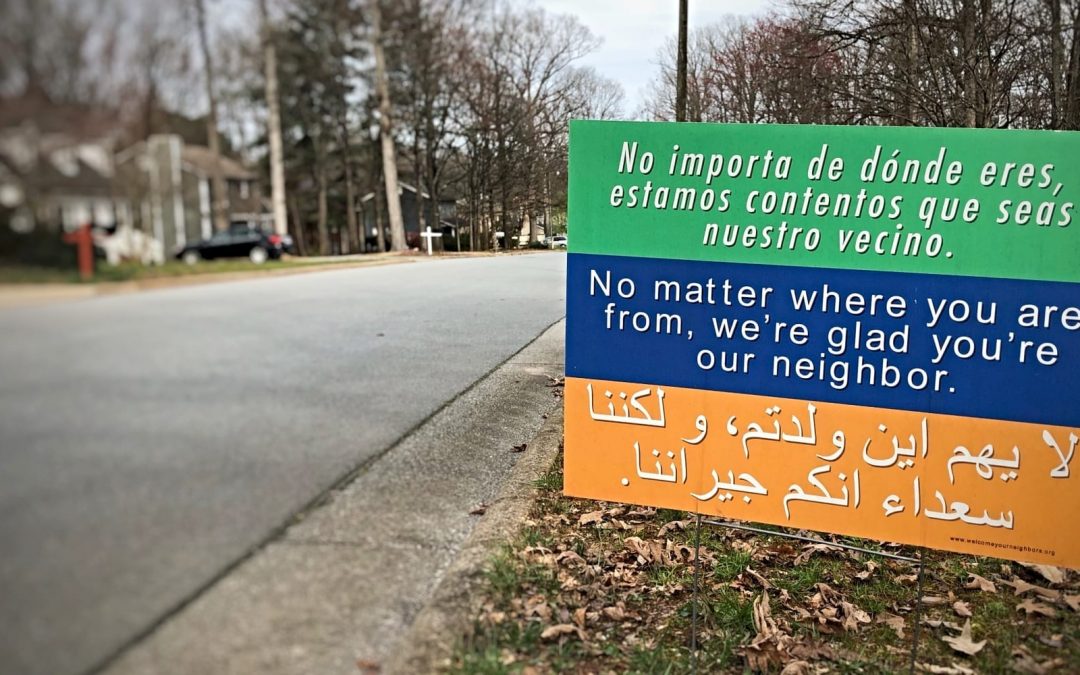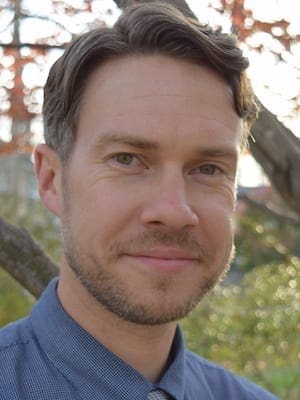There were 91 anti-Muslim assaults in the U.S. reported to the FBI in 2015.
This well surpassed the average number reported between 2002 and 2014, which was 45, and was the highest in a single year since 2001, when 93 were reported.
In 2016, this number increased to 127, and in 2017, the most recent year for which data has been released, 105 anti-Muslim assaults were reported.
The number of total bias-based hate crime offenses increased from 6,885 in 2015 to 8,437 in 2017 – an 18 percent increase over three years.
It’s no secret that during that time, various white supremacist groups began to re-emerge from the shadows, emboldened by the vitriolic rhetoric that quickly became commonplace among many of our political and supposedly Christian leaders.
And unfortunately, anti-Muslim violence has been on the rise not only in the U.S. but throughout much of the Western world.
In early 2017, the church where I currently serve – College Park Baptist in Greensboro, North Carolina, which has worked with a number of refugee families of various faiths over the years – was well aware of this disturbing trend.
As a showing of solidarity with our immigrant neighbors of all faiths, we offered “Welcome Your Neighbors” signs to our congregation.
These signs, which read, “No matter where you are from, we’re glad you’re our neighbor,” in Spanish, English and Arabic, were created in 2015 by Immanuel Mennonite Church in Harrisonburg, Virginia.
They quickly sparked a movement among communities and individuals who wanted to openly show their love and support for all members of their communities.
My family has had one standing at the front of our yard offering its welcoming message ever since.
It has remained up through the implementation of Executive Order 13769 (the “Muslim Ban”); through the Quebec city mosque shooting; through a well-publicized meeting at a restaurant in nearby Kernersville, North Carolina, where one attendee openly suggested killing all Muslims; through the Portland, Oregon, train attack; through a March Against Sharia in our state capital of Raleigh; and through the horrific mosque attacks that took place in Christchurch, New Zealand, on March 15.
While there have been a number of terrorist attacks associated with the Islamic State over the past several years, it is important to remember that, just as there isn’t only one version Christianity, there also isn’t just a single variety of Islam. We Baptists, of all people, should be able to understand that.
To characterize those promoting hate, fear and violence in the name of Islam as representative of all Muslims would be akin to believing that all Christians held to the views of Christian identity groups.
The truth is that Christians and Muslims have much more in common than some might think.
The Quran – the holy text of Islam, God’s word as revealed to the prophet Muhammad – depicts a merciful and loving God (85:14).
It also states that we are created from the earth and shall return to it (20:55) and that a Day of Resurrection will be signaled by the blowing of a trumpet (18:99).
These concepts should sound familiar to Christian readers; consider Psalm 86:5, Genesis 3:19 and 1 Corinthians 15:52.
Many Christians also might be surprised to find that the Quran includes an entire sura (chapter) devoted to Mary.
Sura 19, “Maryam,” provides an account of Jesus’ birth that is arguably more detailed than any of the Christian Gospels’ birth narratives.
In the Quran, Jesus is said to have been conceived through the Spirit of God and made to be a sign and blessing to all people (66:12, 19:21).
Jesus and Mary (among other characters central to Christianity) have both been revered by Muslims throughout Islam’s history.
And beyond these scriptural similarities, it is common knowledge that at the atomic level, we’re all physically made of the same stardust.
Of course, our respective faiths have many important differences as well, but regardless of how alike or different we may be in certain ways, the reality is that we are now and will continue to be neighbors.
As followers of Christ, we are called to offer radical hospitality to all of our neighbors, loving them as ourselves (Matthew 22:39, Mark 12:31, Luke 10:27).
We are called to act in this way by the same Jesus that:
- Dined with tax collectors and sinners (Matthew 9:10, Mark 2:15, Luke 5:29).
- Healed foreigners on account of their great faith (Matthew 15:21-28, Mark 7:24-30).
- Tells us that what we do to the least of our neighbors we do to him (Matthew 25:40).
- Calls us to love our enemies (Matthew 5:43-48, Luke 6:27-36).
- Urges us to do unto others as we would have them do unto us (Matthew 7:12, Luke 6:31).
- Instructs us that the peacemakers will be called children of God (Matthew 5:9).
As a faithful, loving people, we must be unafraid to acknowledge white supremacist terrorism for what it is and recognize that it is fueled by nothing more than fear, hatred and violence.
It is absolutely necessary to call it out by name and to denounce it unequivocally and wholeheartedly.
But beyond that, we must also offer a more loving way by unconditionally extending radical hospitality to all people of all faiths, in all places, at all times, throughout all of creation.
In these divided times, we are called as Christians to offer open arms, minds and hearts to all of our neighbors.
Because, as New Zealand Prime Minister Jacinda Ardern so poignantly put it on March 15, “They are us.” And we’re glad you’re our neighbor.
Author’s note: For the purposes of this article, the Bible translation used was the New Revised Standard Version and the Quran translation used was The Study Quran, edited by Seyyed Hossein Nasr. A special thanks to Dr. Joshua Canzona, assistant teaching professor of theology and administrative coordinator for academic affairs in the School of Divinity at Wake Forest University, for offering his impactful Comparative Theology course.
Christian McIvor serves as the Minister of Music & Worship at College Park Baptist Church in Greensboro, North Carolina. He holds M.M. and D.M.A. degrees from the University of North Carolina at Greensboro and he is currently pursuing a Master of Divinity degree (Class of 2020) at the Wake Forest University School of Divinity.


